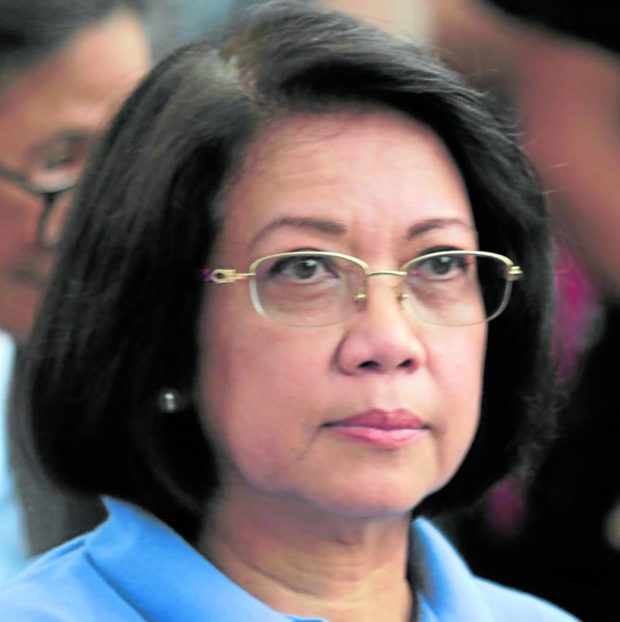BAGUIO CITY, Benguet, Philippines — Growing public acceptance of authoritarianism is one of the urgent issues that needs to be immediately addressed by civil rights advocates regardless of the winners in the May 9 elections.
In an online forum held on May 3, World Press Freedom Day, former Chief Justice Maria Lourdes Sereno cited recent sociological surveys that revealed that “more and more Filipinos have inclinations to harken back to authoritarianism.”
She described this as a “stark reversal” from surveys taken between 1986 and 1989 that showed citizens embracing democracy and vowing to “not have any part in authoritarianism.”
These were the years following the Edsa People Power revolution that led to the ouster of the late dictator Ferdinand Marcos who imposed martial law, and whose son and namesake is currently the front-runner in the presidential race, according to surveys.
Sereno attributed the behavioral shift to populist leaders who had “degraded” democratic institutions to the point where “there is acceptance by a great part of the population that authoritarianism is OK.”
“We have had two administrations that were quite powerful in diminishing [truth and democratic] values,” she said, without adding details.
According to her, false and distorted narratives about martial law, which have inundated many social media platforms, are also to blame despite empirical data showing numerous atrocities and plunder being committed while the Marcos family was in power for two decades.
Firsthand probe
“I have read those records,” Sereno said, adding that she conducted “a first-hand examination” of martial law records she had access to as chief justice.
In the course of her legal career, she was also “able to document and interview torture victims.”
Sereno pointed out that there is actually a law, which has been underutilized, that requires these martial law stories to be part of the education system.
Section 27 of Republic Act No. 10368 (the 2013 law that provides reparation and recognition of martial law victims) requires a Human Rights Violations Victims Memorial Commission to “collaborate with the Department of Education and the Commission on Higher Education to ensure that the teaching of martial law atrocities is included in the basic, secondary and tertiary education curricula.”
Teaching students about martial law and the stories of its victims would help repel disinformation on a grand scale, Sereno said.
“We must communicate the truth—fight historical denialism. Make more community-based recognition of the truth, such as martial law. We must take action against government officials who desecrate the memory of martial law victims or who try to reverse the clear policy of the law,” she said.
Sereno said that the ultimate aim of human rights advocates would be to convey to the public that their value system must prioritize “justice and humane treatment of everyone else.”
RELATED STORIES
Constitution framers: Anti-terror law puts PH on a ‘slippery slope to authoritarianism’
Lesson of Edsa? Vigilance vs abuses, ‘authoritarianism’ — Pangilinan
Anti-Terror Bill ‘uncannily recalls’ Marcos martial law’s ‘dark days’ – Sereno
